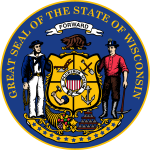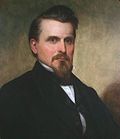
The Republican Party of Wisconsin is a conservative political party in Wisconsin and is the Wisconsin affiliate of the United States Republican Party (GOP). The state party chair is Brian Schimming. The state party is divided into 72 county parties for each of the state's counties, as well as organizations for the state's eight congressional districts. It currently controls the majority of Wisconsin's U.S. House seats, one of its U.S. Senate seats, and has majorites in both houses of the state legislature.

The 1863 New York state election was held on November 3, 1863, to elect the Secretary of State, the State Comptroller, the Attorney General, the State Treasurer, the State Engineer, a Judge of the New York Court of Appeals, a Canal Commissioner and an Inspector of State Prisons, as well as all members of the New York State Assembly and the New York State Senate.

The 1863 United States Senate election in New York was held on February 3, 1863, by the New York State Legislature to elect a U.S. Senator to represent the State of New York in the United States Senate.

Levi Baker Vilas was an American lawyer, banker, Democratic politician, and Wisconsin pioneer. He was the 4th mayor of Madison, Wisconsin, and represented central Dane County for three terms in the Wisconsin State Assembly. He was a major investor in the early development of the city of Madison, and was one of the founders of the company that became Madison Gas and Electric.

The 1862–63 United States Senate elections were held on various dates in various states, occurring during the American Civil War. As these U.S. Senate elections were prior to the ratification of the Seventeenth Amendment in 1913, senators were chosen by state legislatures. Senators were elected over a wide range of time throughout 1862 and 1863, and a seat may have been filled months late or remained vacant due to legislative deadlock. In these elections, terms were up for the senators in Class 1.
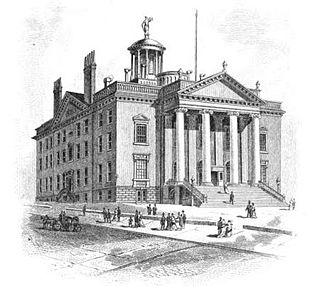
The 87th New York State Legislature, consisting of the New York State Senate and the New York State Assembly, met from January 5 to April 23, 1864, during the second year of Horatio Seymour's second tenure as Governor of New York, in Albany.
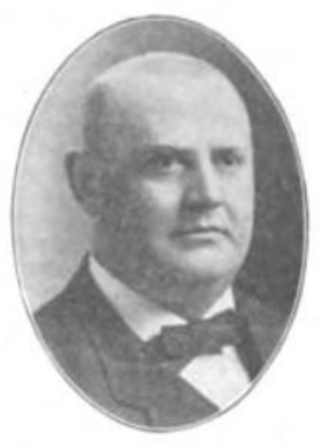
Thomas F. Ramsey was a member of the Wisconsin State Assembly.
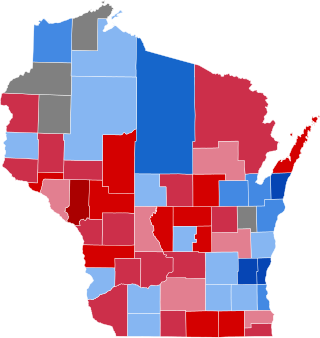
The 1864 United States presidential election in Wisconsin was held on November 8, 1864, as part of the 1864 United States presidential election. State voters chose eight electors to the Electoral College, who voted for president and vice president.
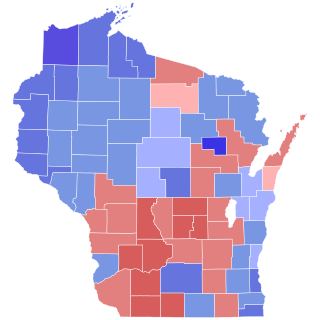
The 1974 Wisconsin gubernatorial election was held on November 5, 1974. Democrat Patrick Lucey won the election with 53% of the vote, winning his second term as Governor of Wisconsin and defeating Republican William Dyke.

The 1970 Wisconsin gubernatorial election was held on November 3, 1970. Democrat Patrick J. Lucey won the election with 54.23% of the vote, winning his first term as Governor of Wisconsin and defeating incumbent lieutenant governor, Republican Jack B. Olson. Roman R. Blenski unsuccessfully sought the Republican nomination. As of 2024, this is the last time the Democratic gubernatorial candidate carried Oconto County.

The 1914 Wisconsin gubernatorial election was held on November 3, 1914. Primary elections were held on September 1, 1914.

The 1859 Wisconsin gubernatorial election was held on November 8, 1859. Republican Party incumbent Governor Alexander Randall won re-election with 53% of the vote, defeating Democratic candidate Harrison Carroll Hobart.

The 1865 Wisconsin gubernatorial election was held on November 7, 1865. Union candidate Lucius Fairchild won the election with nearly 55% of the vote, defeating Democratic candidate Harrison Carroll Hobart.

The 1867 Wisconsin gubernatorial election was held on November 5, 1867. Incumbent Republican Party Governor Lucius Fairchild won re-election with nearly 52% of the vote, defeating Democratic candidate John J. Tallmadge.

The 1869 Wisconsin gubernatorial election was held on November 2, 1869. Incumbent Republican Party governor Lucius Fairchild won re-election with over 53% of the vote, defeating Democratic candidate Charles D. Robinson. Fairchild became the first person to win three terms as governor of Wisconsin.

In the 1861 Iowa State Senate elections, Iowa voters elected state senators to serve in the ninth Iowa General Assembly. Following the expansion of the Iowa Senate from 43 to 49 seats in 1861, elections were held for 25 of the state senate's 49 seats. State senators serve four-year terms in the Iowa State Senate.

The 1904 Wisconsin gubernatorial election was held on November 8, 1904.

The 1906 Wisconsin gubernatorial election was held on November 6, 1906. Primary elections were held on September 4, 1906.

The 1912 Wisconsin gubernatorial election was held on November 5, 1912. Primary elections were held on September 3, 1912.
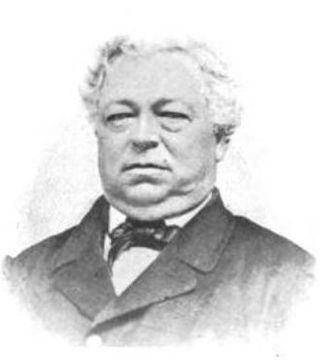
The 1863 New Hampshire gubernatorial election was held on March 10, 1863.

